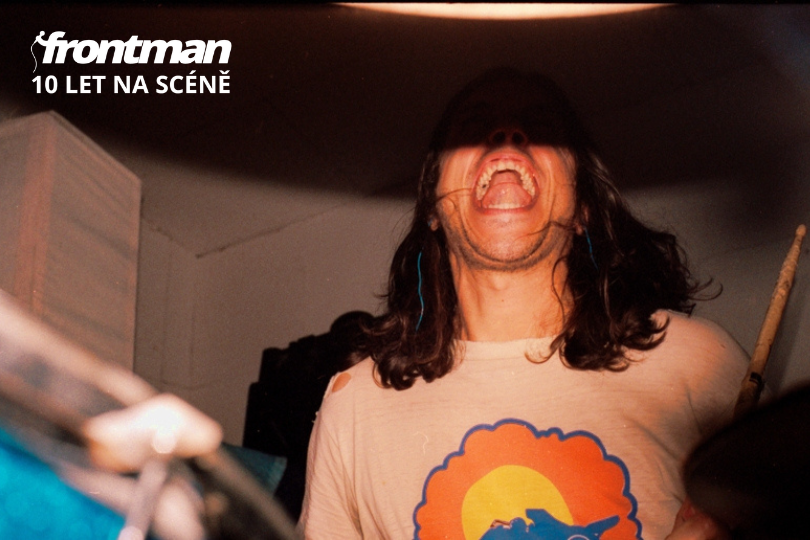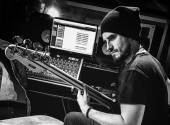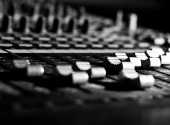
The 10 Most Common Mistakes When Recording in the Studio
What's worse in the studio: the pursuit of perfection or the lack of preparation? Do you have sweaty hands or trouble communicating while recording? In our section of articles on preparation for the studio, here are some more tips on what to avoid.
1) Underpreparation
In other words, underestimating the situation. Studio time is precious, and every moment spent waiting for you to finally get your track right will result in nervous glances from your bandmates, a potential producer quivering with fear, or a sponsor popping tranquilizers. If you want to save yourself and others involved in your recording adventure money, nerves, and time, please be thoroughly prepared. Even Kurt Cobain showed up to the studio fully prepared and with a clear vision when he recorded Nevermind with Nirvana.
2) Overpreparation
No, this tip does not nullify the importance of the previous one. The point is that if you take preparation to the extreme, you run the risk of becoming cramped and uptight in your ideas and opinions. Unless you're a seasoned studio player or producer, don't unnecessarily deprive yourself of the possibilities that the studio has to offer. Your perfect and adamant idea of what you want your record or EP to look like can hinder the creative process that can spontaneously arise in the studio. Don't resist the occasional experimentation and give other people the benefit of the doubt. You'll get a more colorful result that way.
3) Technical problems
Make sure you have spare strings (at least two packs, the more the better), possibly a spare instrument, cable, strap, amplifier, speaker, just a spare of anything that could break. Of course, you don't need to have two of everything (you're not paranoid after all!), but at least check the technical condition of the equipment you want to use for recording.
4) Inappropriate instrument/amplifier
When recording, you have to be as focused as possible, but also "at ease" to give your best. Therefore, play instruments and amplifiers that you are familiar with and know how to use. It often happens that a producer or sound engineer in the studio will make you play on an instrument or amplifier that they think is the best, but may not suit you. Then the recording becomes an ordeal and you although you might end up with a better guitar/bass/drums sound, the recording loses its soul.
5) Listening to every single take
You know those musicians who record the first take and immediately run to the sound engineer to hear how well they played it? Oftentimes, those musicians are drummers. That transition in the second verse was a disaster, wasn't it? Don't get distracted by pointless listening sessions to check if you've played it properly. Just keep playing until you feel you got it right. And that's usually not the first, second, and sometimes not even third try…
6) "Red light syndrome”
Or what happens when the sound engineer announces: "We're recording!" Many musicians, even experienced ones, get nervous when hearing these words and they automatically start sweating, their hands stiffen up, and their performance goes down the drain. This syndrome can only be combatted by sufficient preparation, experience, and the confidence that you are playing the best you can at that moment.
7) The pursuit of perfection
Only machines are perfect and they get short circuits, too. Before you record, think carefully about what's more important to you: machine-like accuracy, or the spirit and liveliness of the recording even at the cost of some minor mistakes? Of course, the style of music you play will have a big influence on your answer. In metal, fusion, or electronic styles of music, maximum accuracy in the rhythm section is an absolute must. If you play alternative rock, blues, jazz, or other styles, you have more tolerance in "feel" after all. However, no matter what genre of music you play, you still need to ask yourself whether you want to be a machine or a human.
8) Recording one instrument after another
In the case of experienced or professional musicians, this isn't necessarily a mistake. Many recordings (I'd even say the vast majority) are recorded with a metronome at a clearly defined tempo, starting with drums, then bass, backing guitar, keys, etc. In this case, the advantage is that you can record small sections at a time, play with post-production, add samples, etc. The disadvantage of this way of recording is often the deadness, the stiffness of the recording. Everything is perfectly matched, aligned, deployed, but often it just doesn't work as a whole. If you're a die-hard amateur, definitely record the whole band playing together. The recording will be more fun, the result more lively and more appropriate to your abilities.
9) Lack of time
Try to be realistic about what you can record and how long it might take you. So, for example, you want to record one track with drums, bass, guitar, and vocals. Do you think you can do it in 4 hours? Maybe so, but the result will be poor. Expect a lot of time to be taken up by things around the recording—drum/bass/guitar setup, voiceovers, lunch break, cigarette break, etc. It's better to pay for more time in the studio and enjoy it than to push the envelope and be unnecessarily stressed. On the other hand, some pressure is needed so you don't end up like Iron Maiden, who had a studio booked for a year on a Caribbean island, but only used the last 14 days to do the actual recording.
10) Underestimating the importance of communication
The studio is often a cramped space where it's easy to have a panic attack. Therefore, get on as well as possible with everyone involved. Try to maintain a good mood, be tolerant but consistent, and don't lose sight of your goal: a great recording of which you can be rightly proud!
Do you recognize any of these points from your own experience in the studio? Let us know in the discussion below.
If you have found an error or typo in the article, please let us know by e-mail info@insounder.org.



